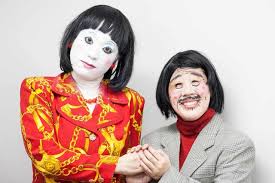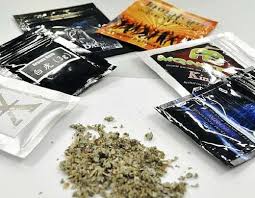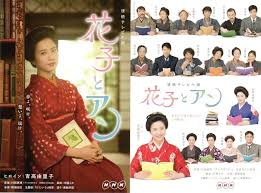It’s been almost a year since I have posted Japanese vogue words of 2013.
As I said last year, one of the interesting end of year events in Japan is an award of new words and vogue words of the year by U-CAN(a Japanese education support company). These words are nominated based on frequency of appearance, degree of recognition on media especially TVs in all generations. These represent the highlight of the year. This event is a thing that remains end of the year in Japan. I am not always familiar with terms and words that nominated, but have heard at least once. (I am not a heavy TV watcher).
The award started in 1984 selecting Top 10 words and grand prizes. The last year 2013, there were 4 grand prizes which was unusual comparing to previous years, but this year two grand prizes are awarded.
Table of Contents
Top 10 Japanese vogue words 2014
Grand prize
集団的自衛権(right to collective self-defense)
The current prime minister Shinzo Abe declared reconsideration for interpretation of “Article 9 of the Constitution“. Japan owns self-defence force, but it is under the condition of pacifist constitution called “right to individual self-defense”. It is basically, Japanese self-defence force counterattacks only if Japan is attacked by foreign nations and if it is necessary to protect own land. However, right to collective self-defense allows Japanese self-defence force to join a war when allied countries are attacked. This arouse much controversy in Japan. If “right to collective self-defence” is approved, Japan officially joins wars.
ダメよ〜、ダメダメ (Dameyo Dame Dame)
Dameyo, Dame Dame is simply translated as “No, no, no”. This phrase was created by a Japanese female comedy duo “Tokyo Elekiteru Union”. They appear on TV everyday now, but until today, they were a minor comedians. Their short story consists of two characters, a middle aged man and a talkative sex doll Akemi. “Dameyo Dame Dame” is a phrase that Akemi only says.
Others
ありのままで (Let it go)
The phrase is coming from a well-know 2014 Disney movie”Frozen”. The main song of the movie “Let It Go” and the chorus part is translated as “Arino mama de”.
カープ女子(Carp Girls)
source:http://xn--eckyfna8731bop8c.jp/geinou/carpjoshi/
Carp Girls are girls who are a female funs’ group of one of the Japanese professional baseball team Hiroshima Toyo Carps (AKA Hiroshima Carp). Hiroshima Carp is only professional baseball team which is own by the city (Hiroshima). There are enthusiastic fans all over in Japan. Generally speaking, Japanese professional baseball are enjoyed by males, but Hiroshima Carp took a strategy to bring female fans more into games such as ladies day and ladies only tours to the away games. The strategy was successful to bring more people to their games, and they are 3rd place in this year which is a remarkable achievement for them.
壁ドン (Kabe don)
source:subcultureblog.fc2rs.com
This one is hard to describe, but the picture above describes the situation very well. Literally it is translated as “wall banging”. This was awarded not only by the Japanese vogue words 2014, but also the situations that girls want to experience at least once in their life.
危険ドラッグ (Dangerous drugs)
source:salsaseoul.sakura.ne.jp
This is fairly strange word, “dangerous drugs”???. Hey, where is the safe drugs? Drugs are drugs. Anyway, this word is used in media since a “noncontrolled drugs” (often called noncontrolled herbs) spread in Japan. There are lots of tragedies caused by the noncontrolled drugs this year. Japan is known as a “non drug friendly county” and very restrict to possession and dealing comparing to the other developed nations.
ごきげんよう (Gokigenyo)
source: http://kaz794889.exblog.jp/21900659
“Gokigenyo” is a greeting word. It is very useful, but not used in common. It sounds like noble and higher class. I have not used this word in my life. The usage of this word is broad. It can be used as “Good morning, good afternoon, hello, how do you do, good bye, and see you later” The reason of award is that the popularity of TV drama called “Hanako and Ann”. This word is used at the end of each episodes, and I believe that it catches the people. The TV drama is about the life of Hanako Muraoka who is the person translated “Anne of Green Gables” into Japanese. Personally, I am very disappointed by the award of this word because the place she was born is Yamanshi prefecture where I am from. There are lots of dialects and idioms used in my family and I really hoped that Yamanashi dialect would be nominated in Japanese vogue words of 2014.
マタハラ(Matahara)
This is an abbreviation of “maternity harassment”.
妖怪ウォッチ (Yo-Kai Watch)
Yo-kai watch is a very popular video game and anime in 2014. Since its release on July 2014, it has been rising popularity among kids and younger generations. I have not watched anime and played video games, but it is highly rated by my friends and their children. Since Pokemon’s mega hit in the world, there are no mega hit video games and anime among kids, but Yo-Kai watch seems to have a potential to be like a Pokemon. However, comparing to Pokemon, getting into the world popularity might be hard because of few reasons: 1) Yo-kai (creature? ghost? ) is very Japanese original comparing to the concept of monsters in Pokemon, 2) Pokemon is still popular in the world. Pokemon series are still continuing.
レジェンド (Legend)
source: http://www.the-nana.com/2319.html
Legend is a nickname of a Japanese ski jumper Noriaki Kasai , who won the silver medal in Winter Olympics in Sochi 2014. At the Sochi Olympics, he was 41 years old and the oldest ski jumper in the Olympics. The ski jumpers in the world call him “legend” showing their respects.











